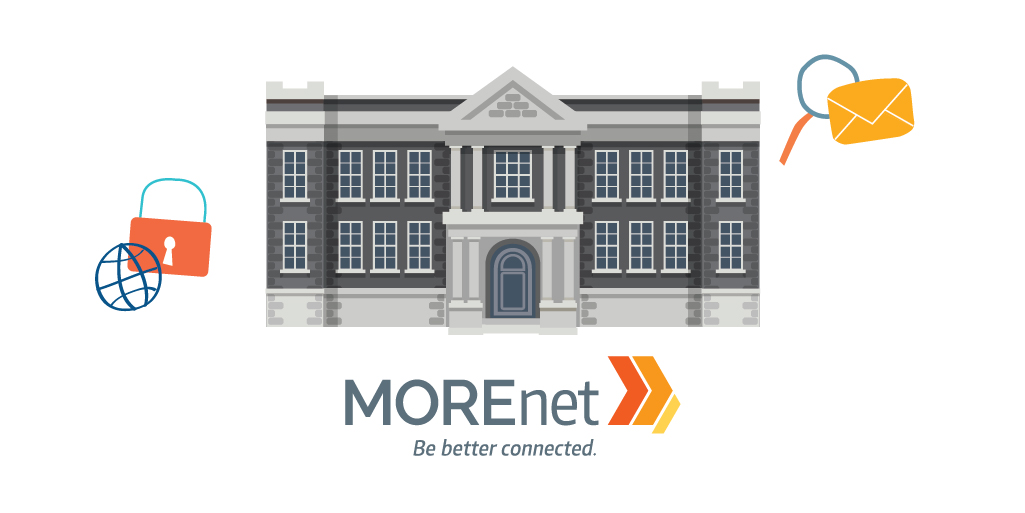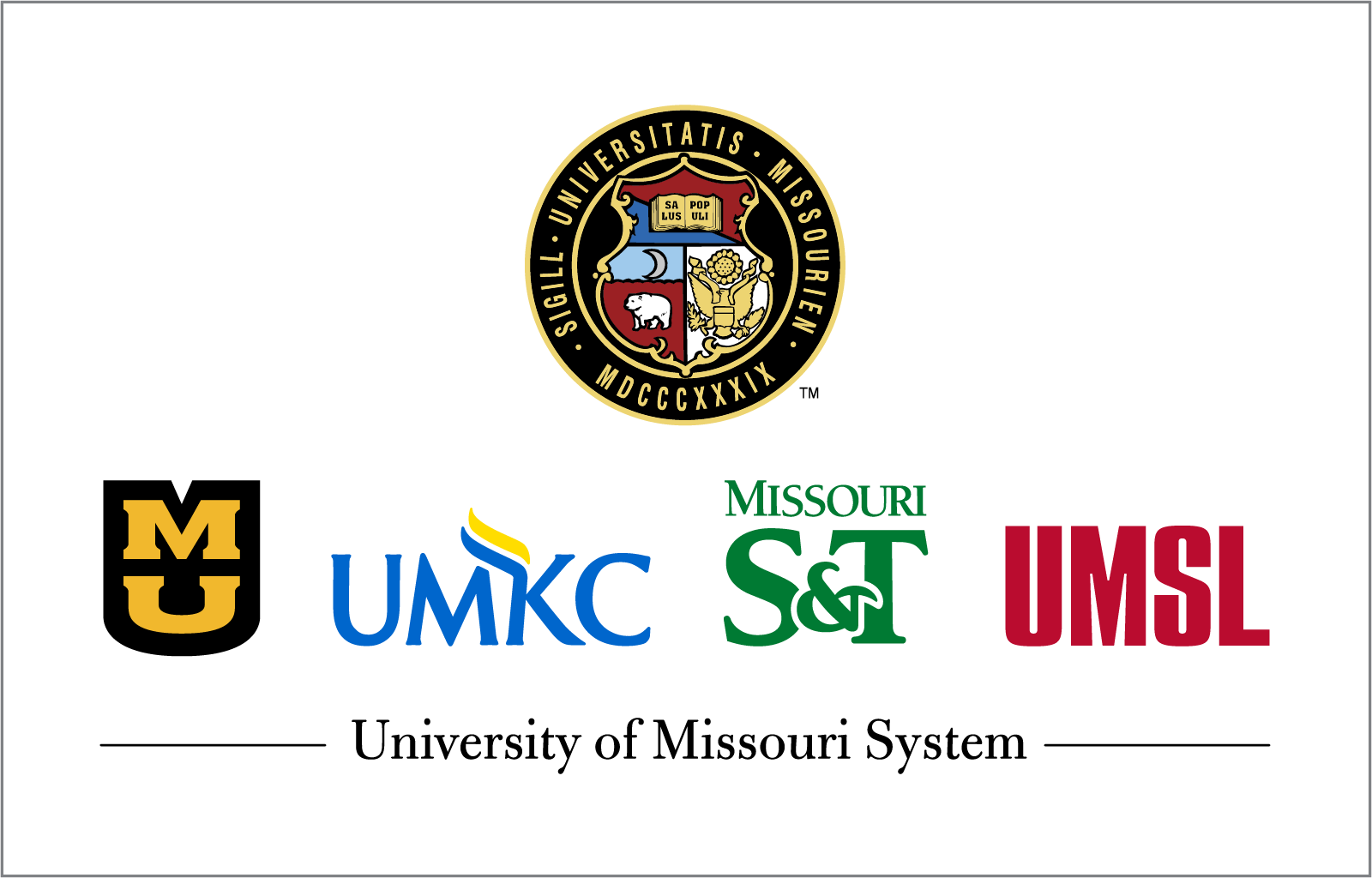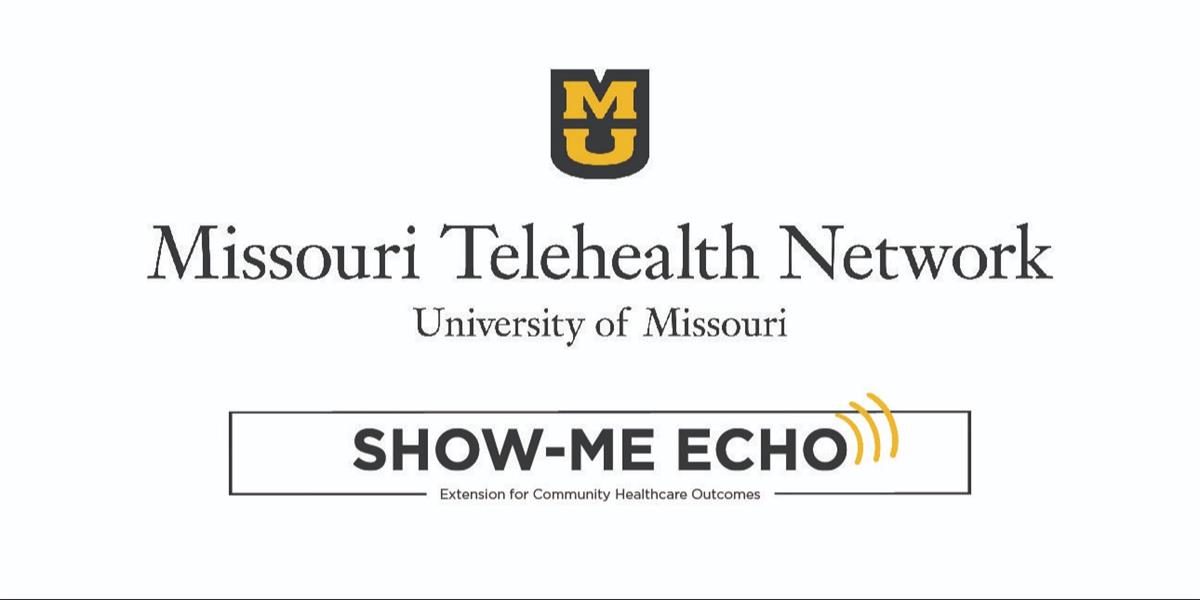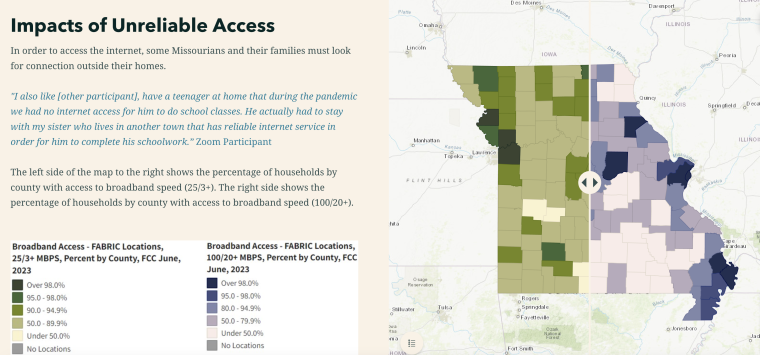Introduction
The University of Missouri System Broadband Initiative supports the statewide build-out of reliable high-speed internet (broadband) infrastructure and use of broadband-based applications to improve the lives of Missourians around the state’s four grand challenges related to:
The Broadband Initiative embodies the UM System’s mission as a land-grant educational institution. It involves faculty, researchers, staff, resources at all four System campuses, and MU Extension staff who serve all 114 counties and the City of St. Louis.
Through the Broadband Initiative, the UM System partners with state and local governments, businesses, and nonprofit stakeholders, sharing knowledge, resources, and tools. Together, we work to build Missouri’s digital superhighway and increase broadband access and use.
The UM System Broadband Initiative works to bring broadband–based applications to local communities by:
Many of the resources listed below are publicly accessible and provided free of charge. Others are special projects, services, or reports that would be provided on a contract or grant-funding basis.
Resource Guide

Digital Ambassadors Program
The MU Extension-operated Digital Ambassadors Program recruit and train local volunteers to aid community members in understanding, accessing, and using Broadband and online applications to improve their lives and communities. The program, which emphasize local partnering, addresses the need to help community members with digital literacy and digital equity in the affordability of Broadband and devices to access and use online applications.
Point Person for information about Digital Ambassadors Program: Noah Washburn: nwashburn@missouri.edu

MORENet
Connectivity, Technical Support, and Training Services for Libraries, Schools, and other public sector organizations:
The Missouri Research and Education Network (MOREnet) is both a data network as well as a human network. We provide Internet connectivity, access to Internet2, technical services, resources, and support, as well as technical training to Missouri’s public sector entities, including K-12 schools, colleges and universities, public libraries, health care, government, and other affiliated organizations. See https://www.more.net/ and https://www.more.net/about-us/morenet-history/

MoBroadband
The MOBROADBAND Website was launched in June of 2020 through a collaboration among faculty and staff from various UM System campuses and programs, and two special University resources in place: Center for Applied Research & Engagement Systems and SourceLink. It offers a variety of tools and information for both Broadband Consumers and Broadband Planners. Here is a list of several of the website’s Resources and their functions:
Broadband Consumer Toolkit Portal – A guide to accessing consumer-targeted tools on the website.
Broadband Planners Toolkit Portal – A guide to accessing tools on the website for planners of broadband infrastructure and Digital Equity projects.
Community Broadband Needs Assessment
Data Maps and Data Mapping Tools
Digital Assets Map – A catalogued and searchable collection of Digital Assets around the state of Missouri. “Digital Assets” include services, programs, workshops, and equipment that help individuals, organizations, and businesses effectively access and use internet technologies.
Digital Ambassador Program – trains community members to act as digital experts. Volunteers learn more about digital applications and serve as experts for their families and fellow community members.
Digitally Connected Community Guide – A collection of tools and resources that communities can use to become digitally connected. Communities that are digitally connected have access to affordable, reliable high-speed internet service and use internet-based technologies and applications to improve the health, education, and economic opportunities for everyone in the community.
Educational Blog Articles – Action-oriented commentaries on Broadband and Digital Equity issues and opportunities.
Events Calendar – Find and register for training, webinars, in-person events, and more.
Frequently Asked Questions – This section of the website features several commonly asked questions about the nature of high-speed internet and its uses and importance in modern society and invites additional questions.
Glossary of Broadband Terminology – Definitions covering a broad spectrum of Internet and Telecommunications technologies, applications, devices, and concepts.
Internet Speed Test – A tool to test your internet speed and explore Speed Test results from your area.
Newsletter Sign-Up – A mechanism to sign up to receive a periodic newsletter from MOBROADBAND with information on Broadband and Digital Equity developments.
Resource Navigator – This is another tool that helps visitors find or add organizations, programs, and people supporting broadband expansion and adoption.
Point Person for information about www.mobroadband.org website: Jamie Kleinsorge: kleinsorgej@missouri.edu

UM System Faculty and Staff
UM System Broadband and Digital Equity Steering Committee with relevant Experience and Involvement in Broadband Infrastructure and/or Digital Equity Matters:
Nate Addington – University of Missouri Kansas City (UMKC)
Nate Addington has served as the Director of Community Engagement and Outreach at UMKC since 2020. He stewards externally facing projects and partnerships on behalf of the university in its ongoing efforts to maintain strong relationships with community stakeholders, develop innovative outreach strategies, and ensure that its engagement with the community is experiential, enduring, and extraordinary.
Natasha Angell – University of Missouri System (UM System)/MORENet
Casey Canfield – Missouri Science & Technology (MS&T)
Casey Canfield is an Associate Professor in Engineering Management & Systems Engineering at the Missouri University of Science & Technology in Rolla, MO. Her research supports decision-making and policymaking in the context of energy, rural broadband, and healthcare. She leads multi-sector, cross-disciplinary, stakeholder-centered teams for problem-oriented research. She can support eff orts to conduct evaluations of program impact. Previously, she conducted an evaluation on the impact of improved broadband service in an underserved community.
Alison Copeland – UM System/MU Extension
Alison Copeland is the Deputy Chief Engagement Officer, University of Missouri System. She convenes the UM System Broadband Initiative collaboratively with faculty and staff from the UM Universities, MU Extension, and partners that have expertise in subject areas that intersect with broadband (i.e., engineering, law, business, education, health, agriculture, community development, data and geospatial science, journalism, entrepreneurship, communications, digital equity and more). Alison facilitates state and national broadband partnerships, strategic planning, and resource/fund development to support broadband expansion.
Lav Gupta – University of Missouri–St. Louis (UMSL)
Lav Gupta is an Assistant Professor of Computer Science at the University of Missouri–St. Louis. He has expertise in broadband requirement analysis and demand forecasting, detailed engineering analysis, technology evaluation, RFC/RFP development, diverse broadband technologies, broadband curriculum development and training, cybersecurity, computer networking, Internet, AI, network security, and information security and supply chain security. Previously, Lav was head of the Broadband Division that involved broadband planning, RFP preparation, technology evaluation, and broadband deployment for approximately 200 cities and 6 million connections in India.
Matt Horvit – MU
Melanie Keeney – MS&T
Kathy Kiely – MU
Jamie Kleinsorge – MU Extension/Center for Applied Research & Engagement Systems (CARES)
Justin Krohn – MU Extension/CARES
Justin Krohn is a Senior Research Project Analyst at CARES where he processes, analyzes, and maps data in support of a wide variety of projects. Justin works to ensure the data and map layers found in the Report and Map Room of MOBroadband are up to date. He also supports collaboration between the members of the UM System Broadband Initiative as well as outside partners such as the Office of Broadband.
Joe Lear – UM System/MU Extension
Joe Lear is a consultant for broadband initiatives with the University of Missouri System Office of Engagement. Joe has collaborated with people and communities for 38 years as an Extension Specialist and in various roles around technology and internet. Joe helped to connect the county University of Missouri Extension offices with high-speed connections by working with the Missouri Research and Education Network (MOREnet) and local internet service providers (ISPs). Joe helped to deploy the Digitally Connected Communities guide to help communities develop a plan to attract ISPs and provide education to community members on the benefits of being connected and using digital applications. Joe helped the National Digital Education Extension Team (NDEET) modify the Digitally Connected Communities Guide to be implemented by other states. Trainings for the program were completed in St. Louis in 2021 and Salt Lake City in 2023. Joe is also helping to develop and pilot the Digital Ambassador program to train local community members to help others in the community understand the benefits of being connected and using digital applications to improve their lives. Joe also helps develop and curate content for consumers on MOBROADBAND.org.
Tony Luppino – UMKC
Anthony (Tony) Luppino is a Rubey M. Hulen Professor of Law and Director of the Center for Law, Entrepreneurship & Innovation at the University of Missouri-Kansas City (UMKC) School of Law. Tony was among the initial organizers of the University of Missouri (UM) System Broadband Initiative launched in 2019 and has been a member of that Initiative’s Steering Committee since its inception. He is also the chair of the UMKC Digital Equity Working Group. In 2017, Prof. Luppino was named the recipient of the UM System’s inaugural Entrepreneurship Educator of the Year Award; in 2018 he received the UM System President’s (Faculty) Award for Economic Development, and in 2019 received the UMKC Trustees’ Leo E. Morton Community Service Award. Tony attributes those recognitions to the good fortune of having had the types of opportunities to work in and with great teams of collaborators at UMKC, across the UM System, and in various community institutions that are essential to collective success in Broadband and Digital Equity endeavors.
Marc McCarty – UMKC
Marc McCarty is an adjunct professor at UMKC Law School and a mentor with the UMKC Center for Law, Entrepreneurship, and Innovation. He was one of the initial organizers of the University of Missouri (UM) System Broadband Initiative, launched in 2019, and has served on its Steering Committee since its inception. Marc led the System’s task force that created MOBROADBAND, which launched in 2020. He is also the primary author of the Digitally Connected Community Guide course, released in 2021, which has been implemented in several communities in Missouri. Additionally, Marc has authored numerous blogs on broadband funding, deployment, and adoption, which can be found on the website.
Rachel Mutrux – MU/Missouri Telehealth Network
Wayne Prewitt – MU Extension
Kent Shannon – MU Extension
Alan Spell – MU Extension/EXCEED (Regional Economic & Entrepreneurial Development)
Alan Spell is an Assistant Extension Professor within the Division of Applied Social Sciences. He specializes in economic and industry research for MU Extension’s Exceed program. Spell’s work includes publishing the monthly Missouri Economy Indicator briefs, conducting broadband and industry impact studies, and providing data training.
Noah Washburn – UM System/MU Extension
Rob Williams – UMKC/SourceLink
Rob Williams is director of SourceLink at the University of Missouri–Kansas City. In this role, Rob has empowered communities across the United States to build networks of support using online technologies and proven methodologies. Rob was part of the founding team that created the MOBROADBAND platform and continues to serve as part of the leadership committee for the initiative. For MOBROADBAND, he provides assistance with marketing and communications and maintains several online components of the website. Rob is a long-time member of the International Business Innovation Association (InBIA), and the International Economic Development Council (IEDC), where he also serves on its Board of Directors.

Missouri Telehealth Network (Show-Me ECHO)
The MU School of Medicine’s Missouri Telehealth Network increases access to patient-centered health care via telehealth for rural and underserved Missourians by providing technical assistance to health care organizations, partnering with key stakeholders, operating telehealth programs, and supporting and developing telehealth policies. MTN provides expertise in key telehealth domains including technical, clinical, operational, legal, and regulatory, and evaluation. See also https://showmeecho.org/.

Reports, Studies, Convenings, Workshops, Data Collection, Analysis & Depictions
The UM System has well-demonstrated capacity to provide reports, studies and data collection, analysis and depiction services that may be needed by governmental agencies or community organizations applying for Broadband or Digital Equity projects or programs funding or completing compliance with the terms of awarded grants or contracts. Here are some UM System Resources that serve such functions:
Center for Applied Research & Engagement Systems – CARES’ staff of professional data experts apply their skills to making maps, developing new data visualizations, and helping individuals and organizations figure out ways to do their work better—see an example of their work related to Broadband at Data Maps and Data Mapping Tools.
Point person for more information about the capabilities of CARES: Justin Krohn: jlkvmn@missouri.edu
MU Extension EXCEED Program – University of Missouri Extension’s Exceed program enhances economic development opportunities by providing high-quality research and insights to our partners. Examples of EXCEED’s work in the Broadband/Digital Equity context include a detailed survey report cited and relied on in the Missouri Office of Broadband Development’s Digital Opportunity Plan along with economic benefit studies of expanding broadband.
Point person for more information about the capabilities of EXCEED: Alan Spell: alan.spell@missouri.edu
UMSL Community Innovation and Action Center – CIAC engages with community partners to co-create knowledge, connections, and tools that move us towards just, equitable, and democratic systems in the St. Louis region and beyond. As part of the State Digital Equity and Broadband Equity, Access and Planning Grant, CIAC conducted a focus group study to better understand the broadband needs and challenges of Missourians across the state.
Point person for more information about the capabilities of CIAC: Kiley Bednar: kileybednar@umsl.edu.
UMKC Digital Equity Working Group – a discussion forum that facilitates the organization of convenings/workshops and task groups or selected projects/initiatives.
Point person for more information about the capabilities of UMKC Digital Equity Working Group: Tony Luppino: luppinoa@umkc.edu
UMKC Center for Digital and Public Humanities – supports students and faculty as they develop and practice critical research skills that integrate digital methods with scholarship in the humanities. It is committed to: 1) Providing resources to students, faculty, and staff as they develop digital and public humanities projects and conduct original research that integrates digital methods with creative work and scholarship; 2) Offering a robust curriculum that provides students with opportunities for high-impact learning experiences and transferable skills that they can apply in the twenty-first century workforce; 3) Partnering with the community to collaboratively conduct research and engage in creative projects.
Point person: Michael Sprague, Digital and Public Humanities Coordinator, spraguemr@umkc.edu.
UMKC Midwest Center for Nonprofit Leadership (MCNL) – Housed within the Henry W. Bloch School of Management, includes a unit that in 2023 did the data reports for a City of Kansas City, MO project funded by a “Digital Demonstration Grant” awarded by the State of Missouri Office of Broadband Development.
Point person for more information about such capabilities of the MCNL: Brent Never: brent.never@umkc.edu
UMKC Earth and Environmental Sciences Research – Faculty did a weather and climate impact study in 2023 on broadband infrastructure as a part of a UM System Broadband Planning grant for the Office of Broadband Development.
Point person for more information about Broadband-related capabilities of UMKC Earth and Environmental Sciences Research: Fengpeng Sun: sunf@umkc.edu

Other UM System Faculty and Staff
Other UM System Faculty and Staff (i.e., apart from those on UM System Broadband and Digital Equity Steering Committee) with relevant Experience and Involvement in Broadband Infrastructure and/or Digital Equity Matters:
Kiley Bednar – UMSL/Community Innovation and Action Center
Antonio Byrd – UMKC
Sara Mohamed – UMSL/Community Innovation and Action Center
At the Community Innovation & Action Center (CIAC), Sara focuses on developing and implementing strategies focused on racial equity, building community with local data partners, participatory decision making, qualitative data infrastructure, and community engagement work. With the Broadband Initiative, she led the collection of qualitative data through focus groups across the state of MO to understand how people access the internet, barriers to access, and use of the internet.
Fengpeng Sun – UMKC
Dr. Fengpeng Sun is an Associate Professor and climate scientist in the Earth and Environmental Sciences Discipline within the Division of Natural and Built Environment at the School of Science and Engineering, University of Missouri–Kansas City (UMKC). His research and teaching focus on understanding the Earth’s climate, its variability, changes, and the impacts of climate change. Dr. Sun’s research encompasses the development of high-resolution climate models, diagnostic analysis of physical climate processes, historical climate variability studies, and future climate change projections. His work places particular emphasis on regional and local perspectives, analyzing the socioeconomic impacts most pertinent to human activities. Dr. Sun earned his Ph.D. in Earth System Science with a specialization in climate dynamics from the University of California, Irvine (UCI). He furthered his research as a postdoc and assistant researcher in the Department of Atmospheric and Oceanic Sciences at the University of California, Los Angeles (UCLA). Dr. Sun joined UMKC as a tenure-track Assistant Professor in Fall 2016.

Service-Learning Mechanisms Involving Students and Faculty
Interdisciplinary Selected Projects in Law, Technology & Public Policy (LT&PP) course at UMKC – Has had law and engineering students work in teams on pre-policy research, analysis, and recommendations on both Broadband infrastructure and Digital Equity planning matters.
Point person for more information about the capabilities of the LT&PP projects-based course: Tony Luppino: luppinoa@umkc.edu
Broadband-related Student Teams Public-Private Partnership (P3) Planning Competition – MU Extension and faculty members in law and entrepreneurship at UMKC successfully piloted such a competition in collaboration with the Northwest Missouri Regional Council of Governments (NMRCG), covering fi ve counties, and involving interdisciplinary teams of students from multiple UM System campuses, producing three plans for NMRCG to consider in its action plans.
Point person for more information about the Broadband-related capabilities of UM System-organized student teams P3 planning competitions: Tony Luppino: luppinoa@umkc.edu
Download this information in a PDF here: UM System Broadband Initiative Resource Guide